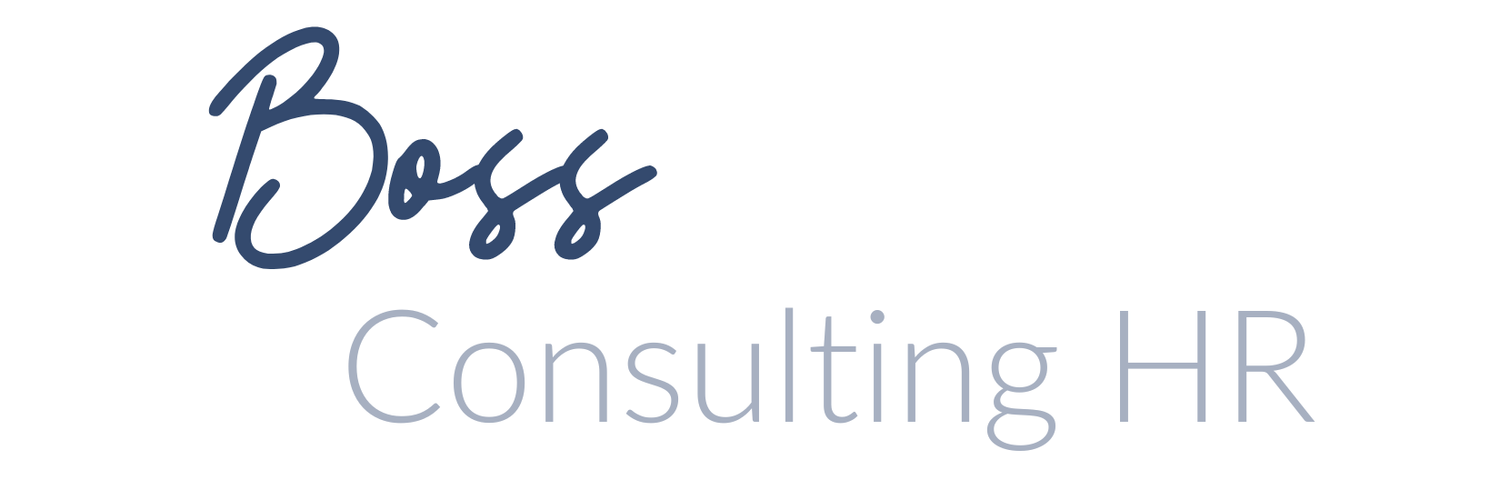What We're Watching | The Top 5 February Employment Law Updates.
What We're Watching, a weekly summary from the team at Boss Consulting HR, to highlight the ever-moving parts that is Human Resources.
Federal Updates
Have you collected your demographic data? It’ll soon be time to report.
Attention to our biz owners with more than 100 employees. This year, EEO-1 reporting will start in July. As a reminder, you must submit all your demographic data to the EEOC (U.S. Equal Employment Opportunity Commission) each year.
Why it matters → Well, it’s required. So there’s that level of compliance to keep up with to avoid penalties and other liability. But the data also helps to support enforcement actions, facilitate research on employment patterns, and encourage self-assessment by employers.
In these reports, you disclose your employee headcount and give demographic information for each. Including – sex, job category, race, and ethnicity.
One last important note. Currently, the form is missing a box for nonbinary individuals. Instead (until this is remedied), you must use the comments section to disclose the number of employees who identify as non-binary.
Classifying your highly compensated employees. You don’t want to make this mistake.
First things first, Connecticut doesn’t have a “highly compensated employee” exemption. That means if you’re an employer with employees located solely in CT then this one doesn’t apply to you.
But if you’re an employer with employees outside of CT, let’s talk. About highly compensated employees, that is.
The Fair Labor Standards Act (FLSA) has certain overtime “exemptions.” One of those exemptions is the highly compensated employee exemption. Otherwise known as HCE.
The Supreme Court’s recent ruling stresses the importance of correctly classifying your employees. And ensuring they meet the exemption requirements.
Even (or especially) for individuals that are higher earners.
In other words, just because an employee earns a high daily/hourly rate does not mean you’re off the hook for paying them overtime.
Shipman reminds us, you’ve got to “provide employees with a reliable, predetermined compensation” for each given workweek. Without this, you won’t satisfy those overtime exemptions.
Why it matters → This case is a great reminder that it can be easy to misstep and misclassify an employee as exempt. Especially our HCEs. After all, FLSA rules aren’t messing around.
To our employers with employees who make a high-earner rate and have abnormal work schedules, we encourage you to read up and remember the “duties test” which can help you classify exempt employees.
Severance agreements. There’s a new set of rules you need to follow.
We’ve got a new decision from the NLRB (National Labor Relations Board) this week. One that affects our private-sector employers.
The NLRB ruled to restrict what you can and can’t include within your severance agreements.
The cannots? Confidentiality and non-disparagement provisions.
Why it matters → We know that some provisions get included in severance agreements to protect against issues that could have business-wide ramifications. But with this new decision, the areas in which you can do so are limited.
This ups the complexity of drafting these agreements and could carry further implications for employers.
Reach out to us at BCHR with any questions you may have on this one. Or read more here.
Connecticut Updates
We’ve got all eyes on this one. Could obesity be classified as a disability in CT?
This is one we are eagerly watching, as it could set precedent. Obesity has never been considered a disability. But a CT court is hearing a case that asks them to classify just that.
A state corrections officer was denied a slew of promotions. Missed promotions, which he is arguing, were because of discrimination surrounding his weight.
Why it matters → While obesity itself is not a disability, other disabilities that cause obesity potentially would be. Which could mark important changes in discrimination around weight. And result in repercussions for employers.
While the fact that he’s a state employee (which means he could have different disability protections than private sector workers) could complicate matters, this case is one we are keeping our eye on. We will send any new developments your way.
Employers, mark those calendars and do it now. Avoid penalties, stay in compliance.
Mark your calendars Connecticut employers, this is an important one. You’ve got until April 30, 2023, to issue any employee contributions that are overdue. Come May 1, 2023, the Connecticut Paid Leave Authority will begin taking action on any outstanding delinquent payments. This includes evaluating interest and penalties.
Why it matters → While you may have a payroll provider that is (technically) responsible for issuing employee contributions, the liability still falls on you as the employer for any discrepancies. So you’ve got to stay in the know and stay up on your contributions.
We urge you to review all deductions over the last few years (2 years to be exact) and make sure they are correct. Failure to do so could put you in the clutches of the Connecticut Paid Leave Authority as they assess.
If you need any help setting up your contributions or ensuring their accuracy (and your compliance), we are here to help. Reach out to us to schedule a consultation.
If you have further questions on anything above or need guidance on compliance and best practices, our team at Boss Consulting HR is here to help. Get in touch.

